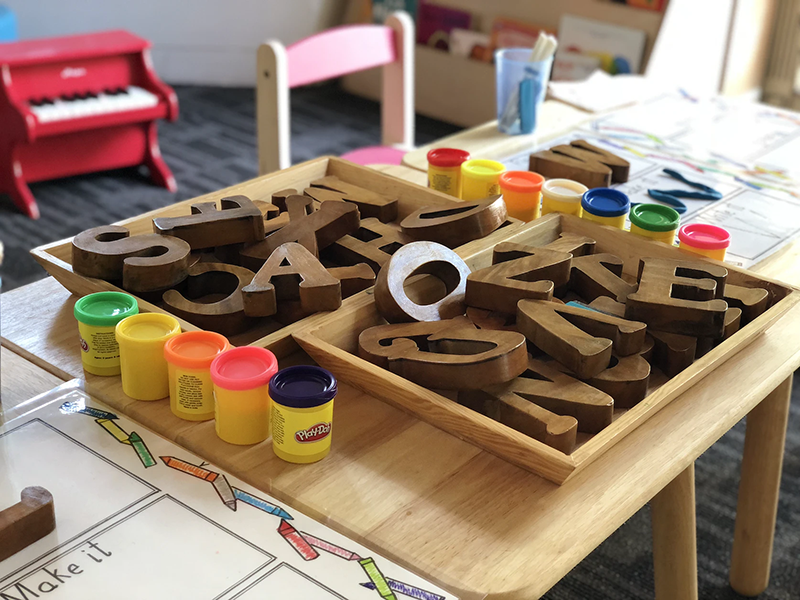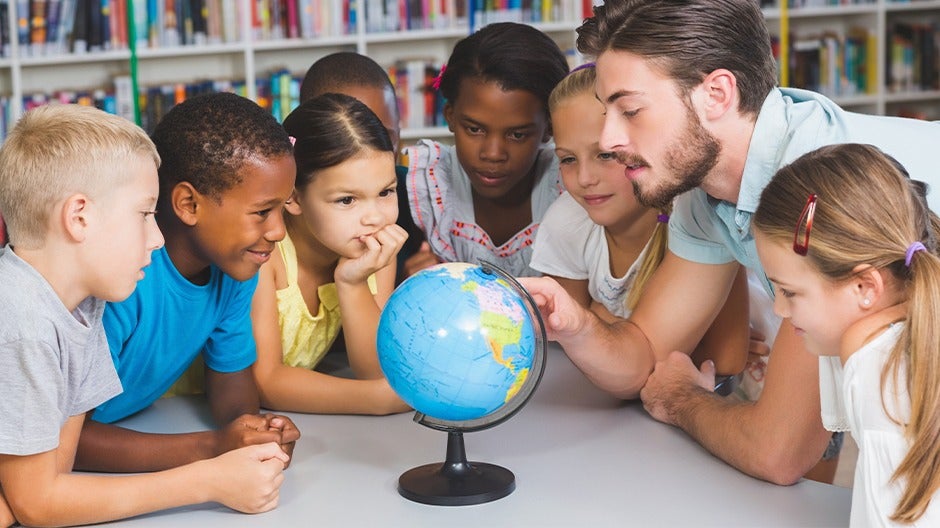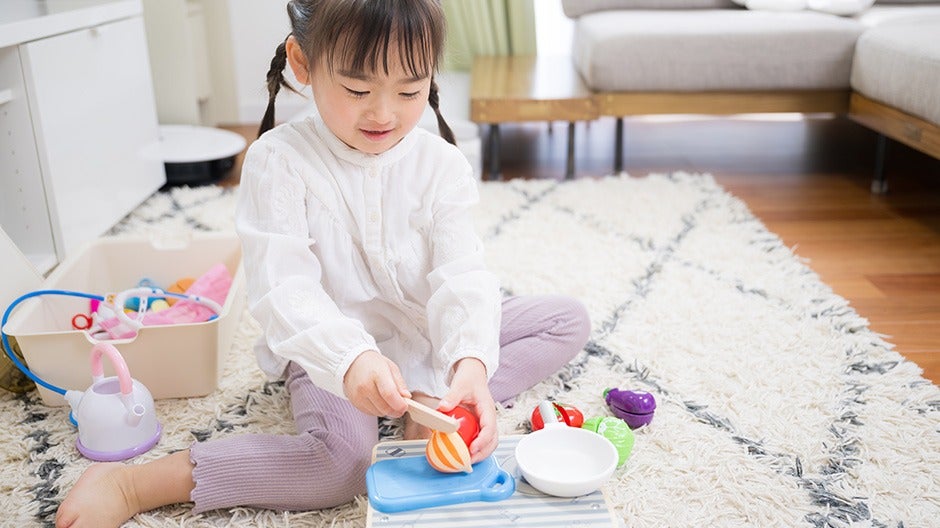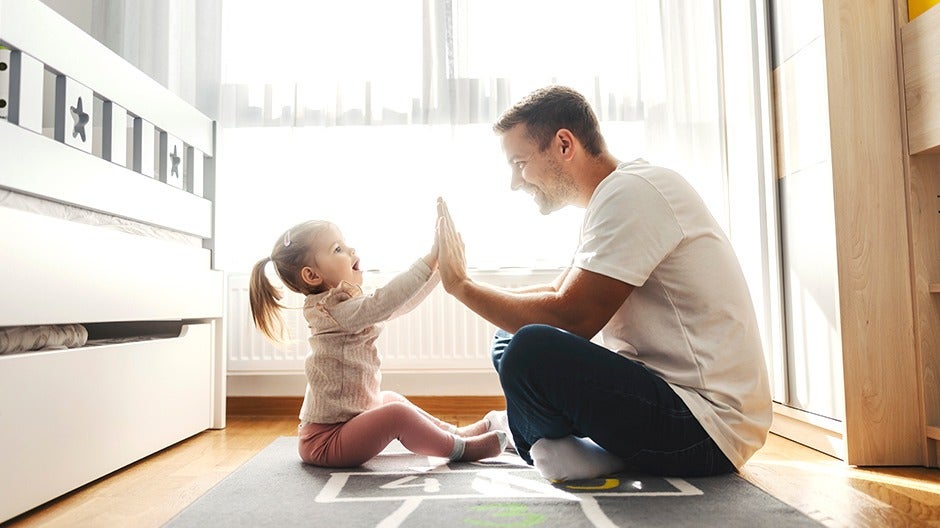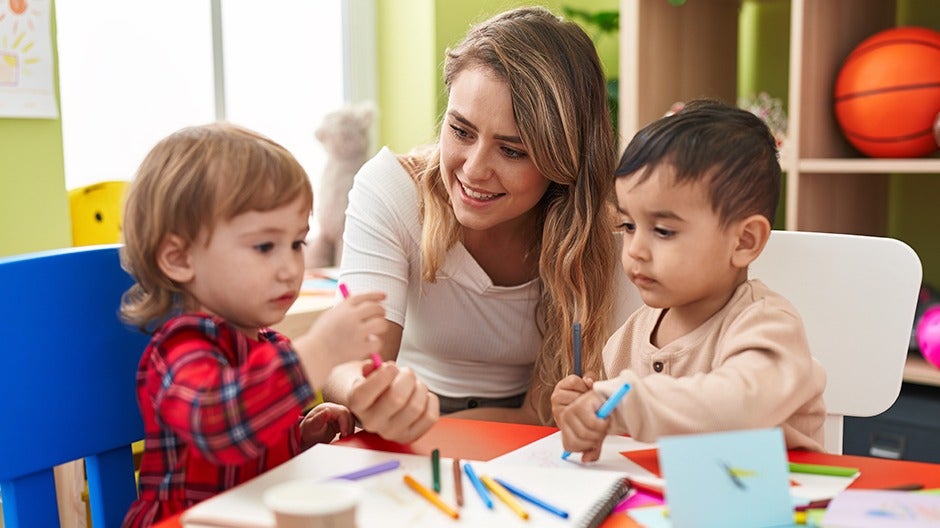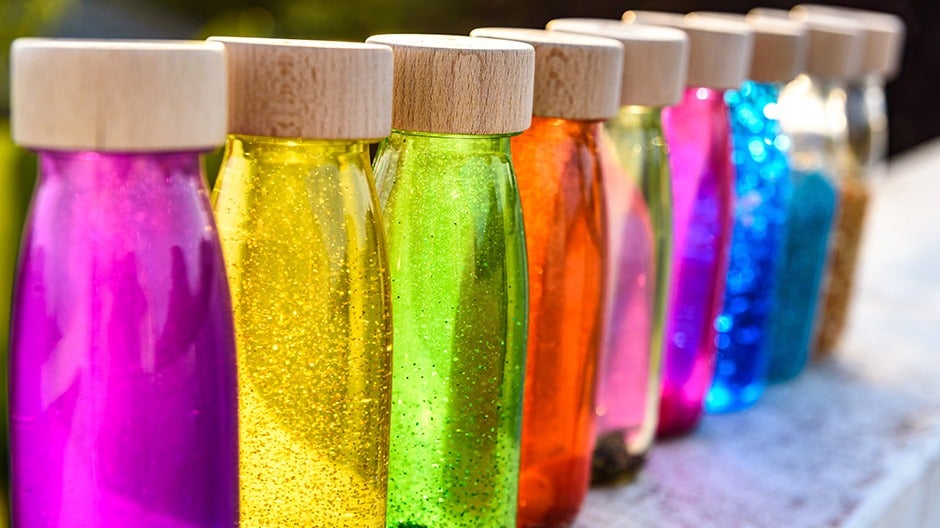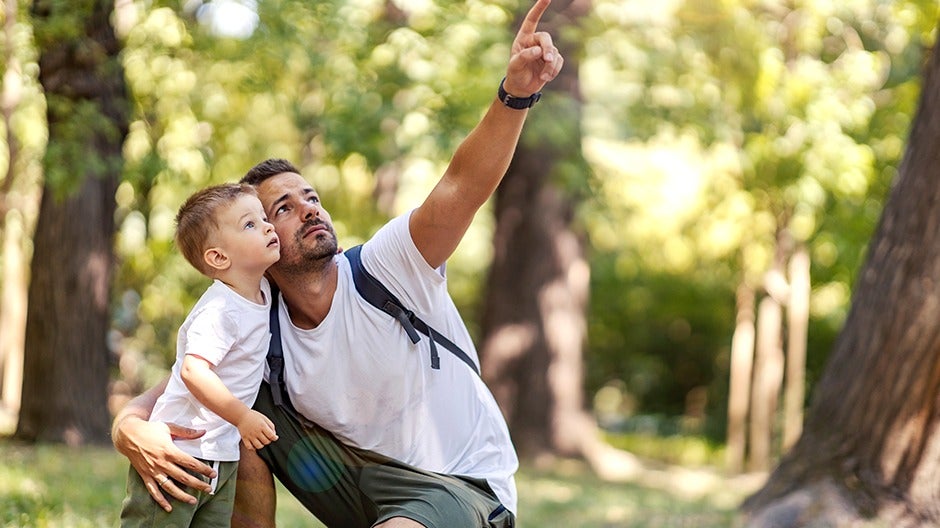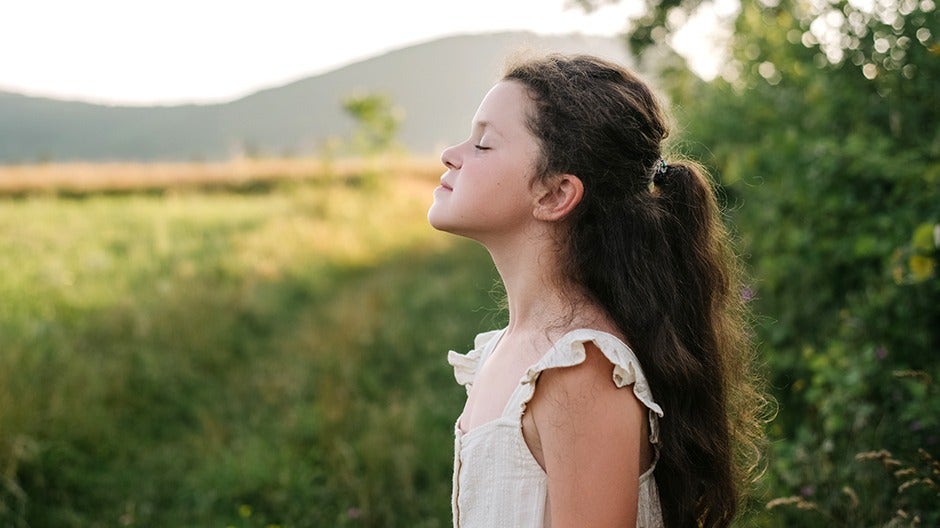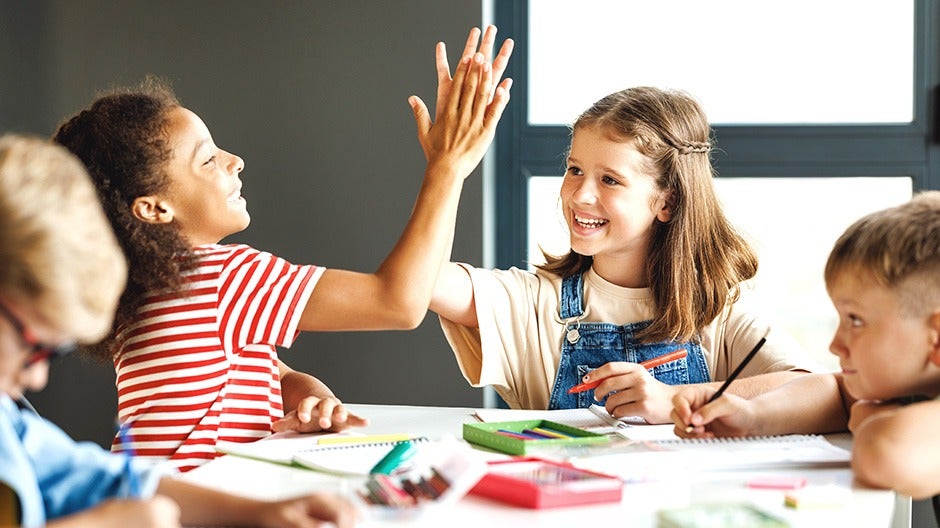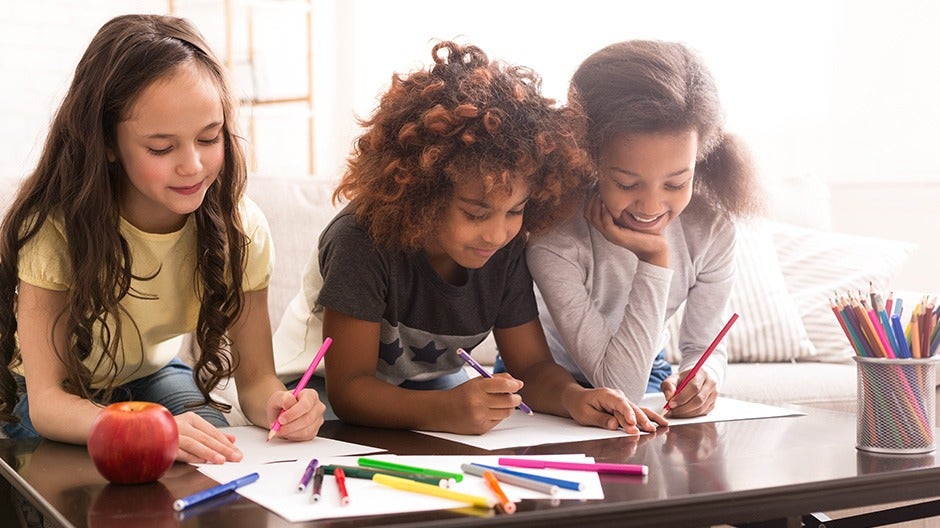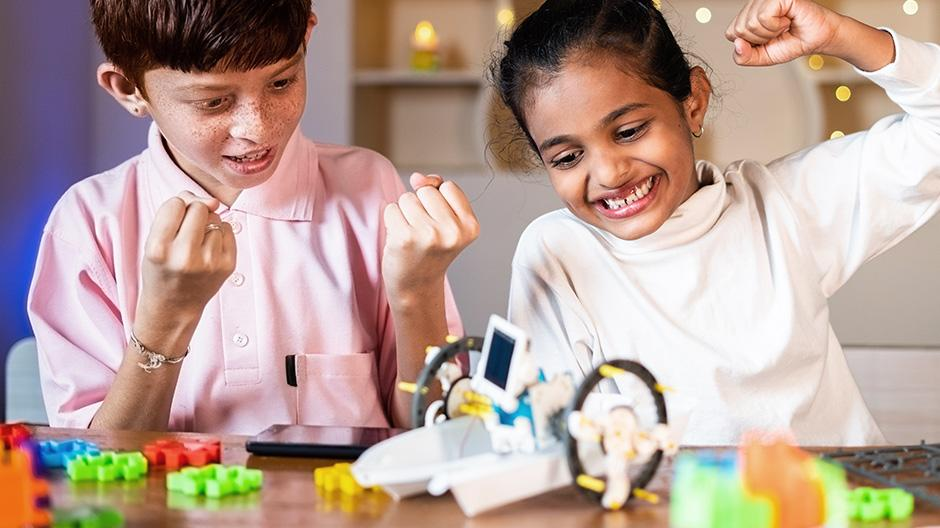You’ve probably heard that your preschooler will learn a lot in school. But what exactly does that mean? What will your child be learning this year? And how can you help reinforce the preschool curriculum at home? You’re in the right place to find out.
The Short Cut
- Preschool is too soon for a strict academic focus (kids’ brains aren’t ready yet)
- Instead, preschool curriculums help with social, emotional, and physical development
- Play is the most natural way for kids to learn; your child should see a lot of play-based learning experiences in preschool
- Kids learn a lot in preschool—from recognizing letters and following directions to taking turns and resolving conflicts, they’re working hard!
At Begin, we focus on developing the 5 C’s, a group of skill areas at the heart of the Begin Approach to helping kids thrive in school and life. The typical preschool curriculum covers a lot of the 5 C’s as well, from Core Skills like literacy and math to Character skills like recognizing emotions and Critical Thinking skills like following directions.
In this article, we’ll define what exactly preschool is and chat about what might be included in your child’s school setting. Let’s dive in!
What Is a Preschool Curriculum?
Typically, preschool will be your child’s first formal educational setting. It usually takes place about two years before kindergarten, right before pre-K.
A preschool curriculum is a set of planned learning experiences or goals that educators use to guide what they will teach young children.
The primary purpose of any curriculum should be to help kids build the skills and knowledge they need to be successful in school and beyond. However, since preschoolers are young — typically about three years old — most preschools aren’t rigorous in academic material.
Instead, they focus on social, emotional, and physical development. The curriculum is often taught through play-based learning experiences that introduce children to the concepts in a gentle manner, laying the foundation for future academic success.
What’s Covered in a Preschool Curriculum?
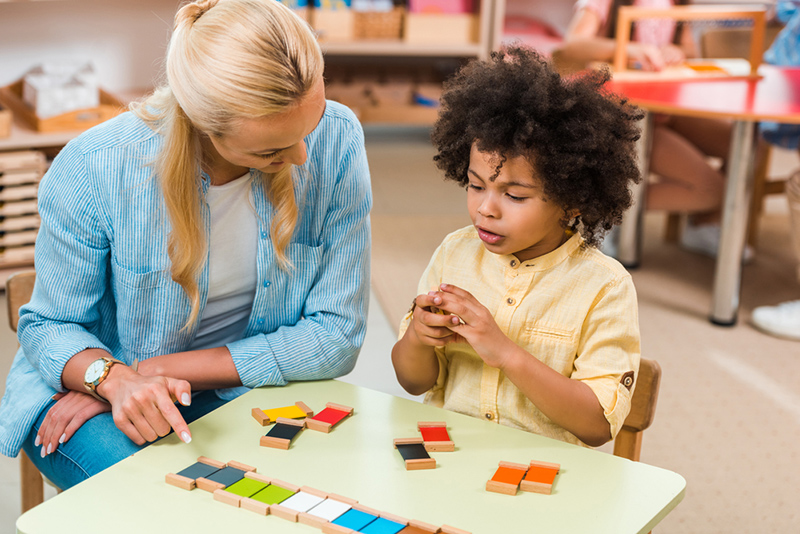
Most preschool curriculums introduce kids to various academic concepts, emphasizing reading and math. Social skills, such as how to share and cooperate with others, are also taught.
Here’s a snapshot of the typical preschool curriculum, including some of these basic academic and social concepts your child will learn. Of course, every school is different, so check with your child’s teacher for more specific details about their education.
Academic Skills
Early Literacy
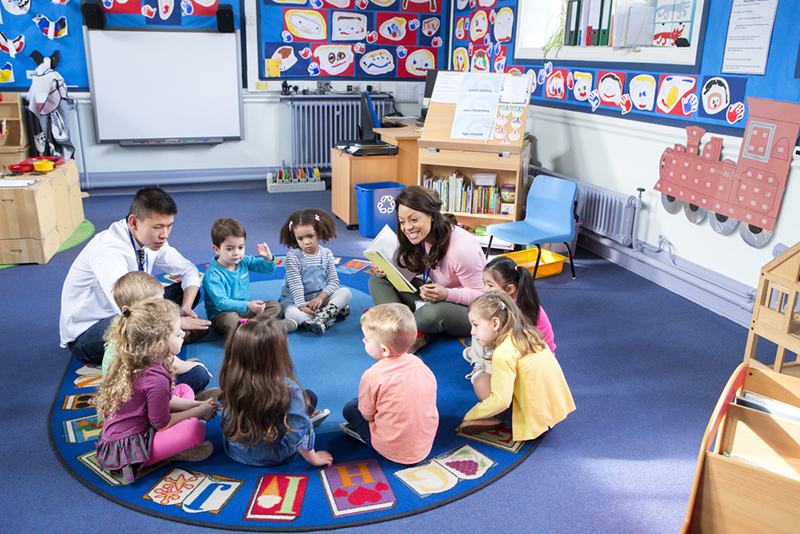
Preschoolers begin to learn about the alphabet and the concept that letters make sounds.
They’ll be exposed to both uppercase and lowercase letters, though they likely won’t be expected to identify them all at this age. Often, an emphasis is placed on the letters in their name.
Their teacher will also help them practice phonological and phonemic awareness as they lay a foundation for reading and writing later. These skills involve being able to hear and manipulate the sounds in words. To practice, they’ll likely play rhyming games or say tongue twisters.
Your child will be in a literacy-rich environment throughout their time in the preschool classroom. As they engage with books and listen to stories, they’ll understand basic narrative structure, —such as beginning, middle, and end — and practice retelling their favorite tales.
They’re also being introduced to print awareness at this age. For example, they’ll learn that we read from left to right, top to bottom. They’ll also practice holding a book correctly and turning each page carefully as they look at the pictures and words.
In addition to learning in the classroom, letting your child use the HOMER app at home will give them a head start on their reading journey.
As they’re playing fun games, they’ll be introduced to important literacy skills, such as letter identification, phonemic awareness, and vocabulary.
Beginning Math Skills
In preschool math, the focus is on helping children develop a strong foundation in numbers and counting by practicing math readiness skills.
They’ll practice counting through practical tasks, such as helping count out two cookies for a snack or the number of doors they must pass to get to the playground. They might also practice counting and sorting math manipulatives, such as unifix cubes.
Your child will also learn about shapes. For example, they might learn how to draw a snowman by drawing three different-sized circles or playing a shape-themed math game.
In addition, colors are often taught in preschool through hands-on experiences. For example, students might be asked to wear a particular color one day, or they might have a snack that’s the color they’re learning about that week.
Hands-On Science
At this age, curiosity is at an all-time high. Preschoolers want to know why the sky is blue and how a flower grows. They’re also very interested in exploring their environment.
All of this makes science a perfect subject to explore in preschool. And, since hands-on learning is often more effective with young kids, most preschool science curriculums are designed to be interactive.
For example, your child might help plant and care for a class garden. They might also participate in water play activities or conduct simple experiments.
The topics they learn this year will be studied more in-depth in the later grades, so it’s OK if they don’t seem to fully grasp the concepts. This early introduction creates background knowledge that your student can later build upon.
Early Childhood Social Studies
In social studies, preschoolers will learn about their community and the people who live in it. This might include learning about community helpers, such as police officers, firefighters, and librarians.
They’ll also learn about different celebrations and holidays. This is an excellent opportunity to talk with your child about your family’s traditions.
As they’re introduced to social studies (and the other content areas), they’ll also be learning essential vocabulary words. These words will help them communicate effectively and make connections to what they’re studying.
Social Skills
Social-Emotional Learning
In addition to the academic content areas, preschool also provides an opportunity for children to learn important social skills such as how to:
• Take turns
• Resolve conflicts
• Listen to and follow instructions
• Cooperate with others
While they won’t fully develop these skills until they’re a bit older, instruction in social skills at an early age can help your child better prepare for interactions with others throughout their life.
In addition to social skills, preschool is also a time when children begin to learn about emotions. This is called social-emotional learning (SEL). SEL involves teaching kids how to understand and manage their emotions. It also helps them develop empathy for others.
The Learn with Sesame Street app can help you continue this instruction at home. The games and activities will help your child practice what they’ve been learning and have fun!
Communication Skills
For your child to be successful in school (and in life), it’s vital for them to have strong communication skills. These skills include both speaking and listening.
At this age, your child will practice communication as they express their needs and wants, participate in group activities, and ask questions about what they’re learning. They’ll also have the opportunity to talk about their thoughts and feelings.
Encourage communication at home by talking with your child about their day, reading books together, and having family conversations around the dinner table.
Sharing
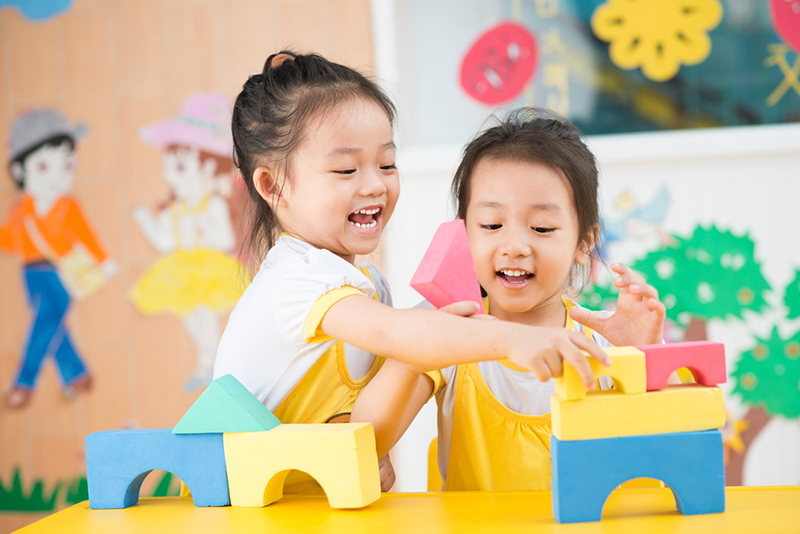
Learning how to share with others is often difficult for preschoolers. After all, they’re just beginning to understand that not everything is theirs.
In preschool, your child will learn about sharing and how it works. They’ll practice sharing books, toys, and materials with their classmates. And, hopefully, they’ll begin to understand why it’s important to share.
If sharing is something that your child struggles with, don’t worry. It’s normal for them to need some time to adjust. Just continue to encourage sharing at home and while at playdates; eventually, it will become second nature.
Classroom Readiness
For many young children, preschool is their first exposure to the classroom. There’s an entirely new set of rules to follow, expectations to meet, and materials to use.
Your child will gradually become more comfortable and confident in the classroom during the year. By the end of preschool, they should have more experience listening to the teacher and staying on task.
However, this can be difficult for some children. If your child is struggling with the transition to preschool, talk to their teacher about ways to help them feel more comfortable in the classroom.
Motor Skills
Physical Education
During the preschool years, your child will continue to develop their fine and gross motor skills. These are the skills they use to move their bodies and manipulate objects.
As they complete different physical activities, they’ll strengthen their muscles and improve their coordination. While three-year-olds won’t play many organized sports, they will have plenty of opportunities to practice their motor skills.
For example, many preschools offer physical education (PE) classes, where children can learn and play games that require movement, such as hopscotch, running races, and playing with balls.
Encourage these skills at home by setting up an obstacle course, going for walks, riding bikes, or playing catch in the backyard.
Arts and Crafts
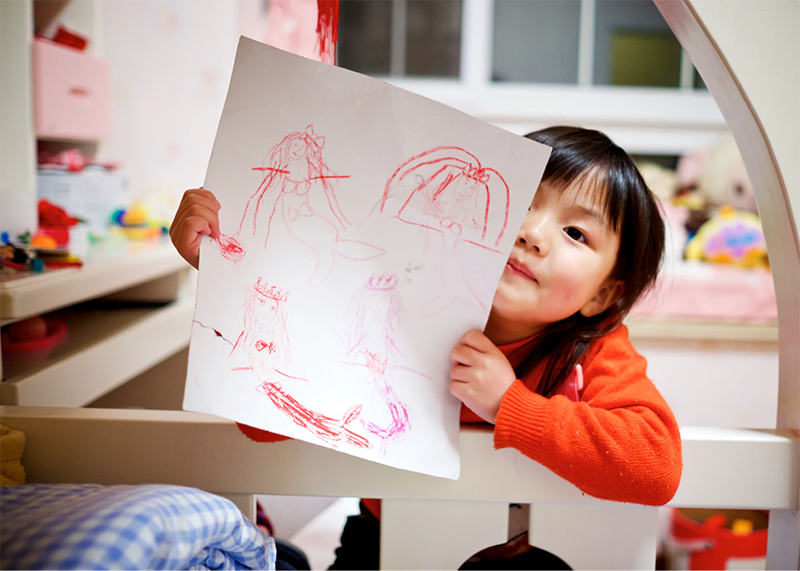
Art is an important part of the preschool curriculum. It’s not only a great way for children to express themselves, but it also helps them develop fine motor skills and learn about colors, shapes, and patterns.
During art time, your child will have the opportunity to try out a variety of materials and mediums, such as crayons, markers, paint, clay, and more.
They’ll experiment with different techniques, such as mixing colors and making patterns. And they’ll create masterpieces to take home and share with you.
Preparing Your Preschooler for Lifetime Learning
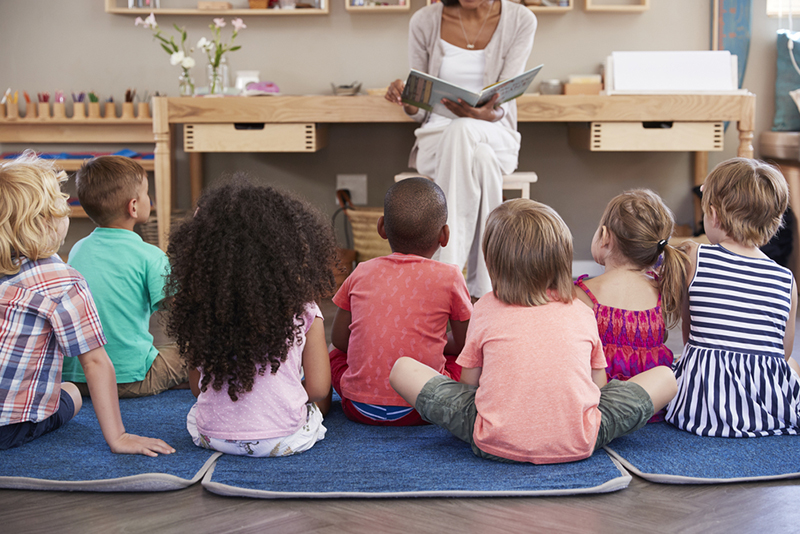
The preschool curriculum is designed to help children prepare for future academic experiences. By the end of the year, your child should have a good understanding of early academic concepts and be more comfortable in a classroom setting.
You can also reinforce the material they’re learning at home through fun digital and hands-on activities. Check out the Begin Early Learner Bundle for a single research-backed subscription to award-winning apps, activity kits, and 1-on-1 guidance that covers all the early learning essentials—the perfect complement and supplement to your child’s preschool curriculum. With your support, your child will be ready for anything preschool (and life) throws their way!
